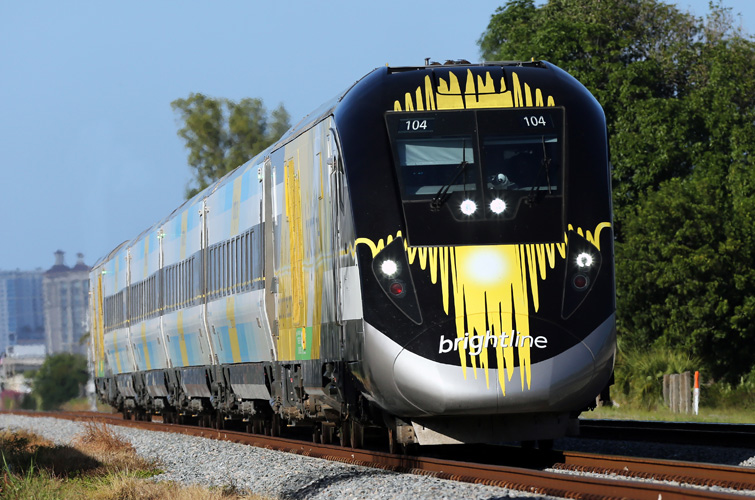
According to Virgin Trains USA’s latest quarterly financial report, ridership and revenue improved dramatically in the third quarter of 2018, but losses also increased, and Indian River County Attorney Dylan Reingold said the company continues to fall short of its revenue and ridership projections.
The company, previously known as Brightline, carried 159,586 passengers and generated $2.9 million in revenue in the three-month period ending on Sept. 30, representing a 50-percent increase in passengers and a 91-percent jump in revenue, according to the unaudited report released in late December.
The quarterly loss ticked up from $28.3 million to $30.9 million.
During the first nine months of 2018, the train company took in $5,233,000 in total revenue while losing $87,458,000 according to the report, which was certified by Virgin Trains CFO Jeff Swiatek.
It’s a clear indication that “Brightline and its family is still struggling,” Dylan Reingold, attorney for Indian River County said of the latest numbers.
Reingold recently shared the company’s 3rd quarter financial statement with the Indian River County Commission, which is fighting to keep Virgin Trains USA from constructing a high-speed passenger railroad that would send trains through Vero Beach 32 times a day as part of a West Palm Beach to Orlando route.
The rates reported are “still well below the predicted ridership of one million for the whole year and over $20 million in revenue,” Reingold said. “I’m not sure how the first three quarters of unaudited financial reports puts Brightline on track to meet the projected ridership of over two million riders and over $60 million in revenue for 2019.”
Despite last year’s numbers, company officials said they remain optimistic their venture will succeed in the long term.
“It’s an ongoing process,” Ali Soule, director of public affairs and media relations for Brightline said. The company’s immediate goal is to raise the estimated $2 billion needed to construct the West Palm Beach to Orlando route.
That effort was bolstered on Dec. 24 when a federal judge dismissed the county’s latest lawsuit against the company, clearing the way for it to begin selling $1.15 billion in tax-free, government-backed private activity bonds to help pay for that construction.
In his ruling, U.S. District Court Judge R. Cooper rejected the county’s argument that the U.S. Department of Transportation wrongly granted permission for the company to use private activity bonds to finance the project. He also dismissed the county’s challenge of the validity of an environmental impact statement the U.S. Department of Transportation conducted.
Brightline began to rebrand itself as Virgin Trains USA in November when Virgin Group acquired a 3-percent stake in the enterprise. Virgin Group is a multibillion corporation that operates more than 60 types of businesses throughout the world, including airline, music, hotel and casino enterprises.
The deal is expected to provide the train company access to billions of dollars in new revenue and help it expand its high-speed railway services to other states, including Nevada and California, according to company officials.
“Virgin is a globally recognized brand,” said Ben Porritt, vice-president of corporate affairs. “The partnership could help to provide access to millions of customers with the potential for increased ridership from other Virgin branded travel and hospitality businesses, including Virgin Atlantic, Virgin Hotels and Virgin Voyages.”
County commissioners are expected to decide this month whether to appeal the judge’s decision, Reingold and Commissioner Peter O’Bryan said.



